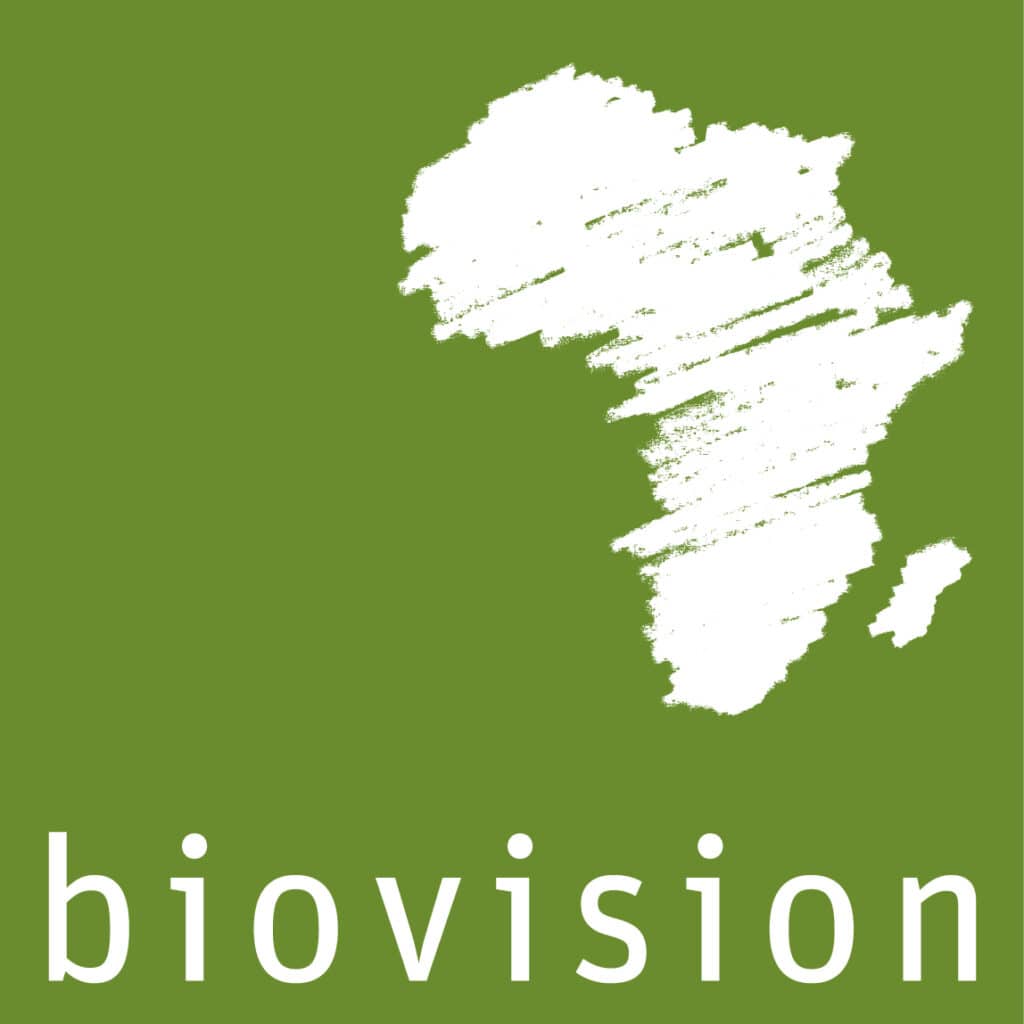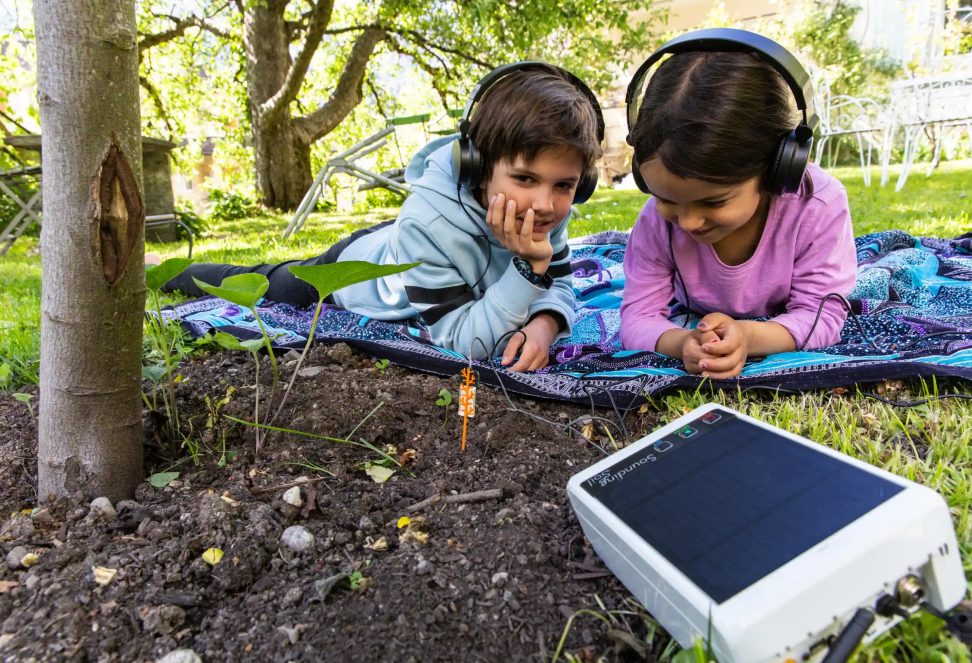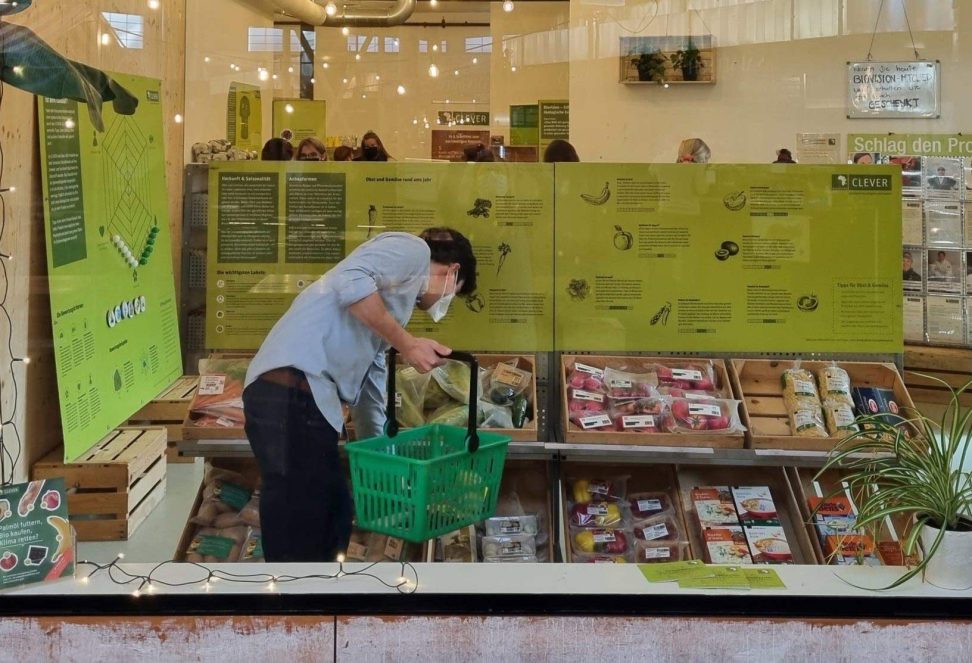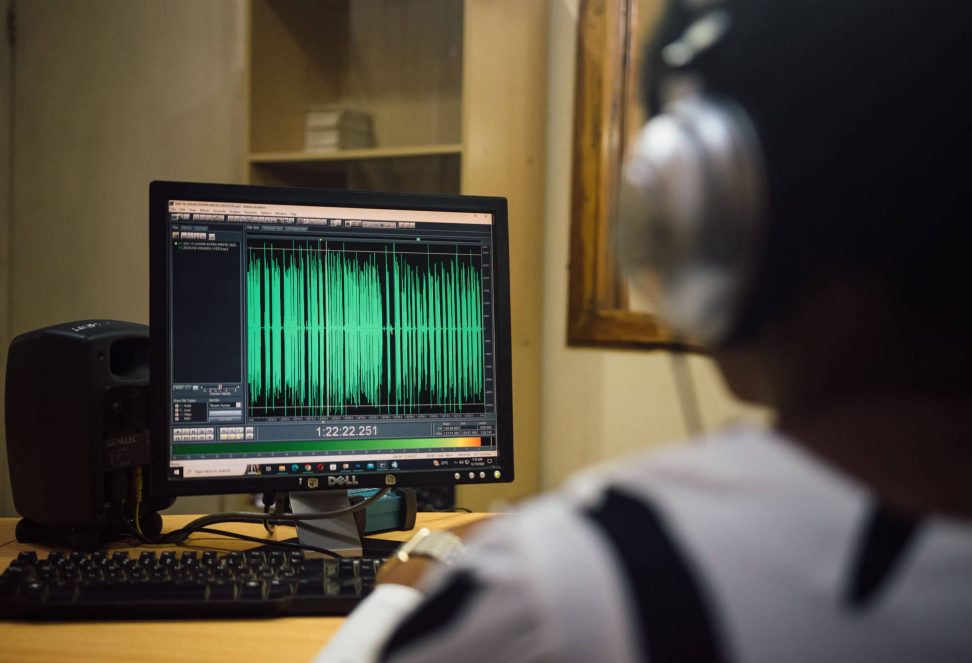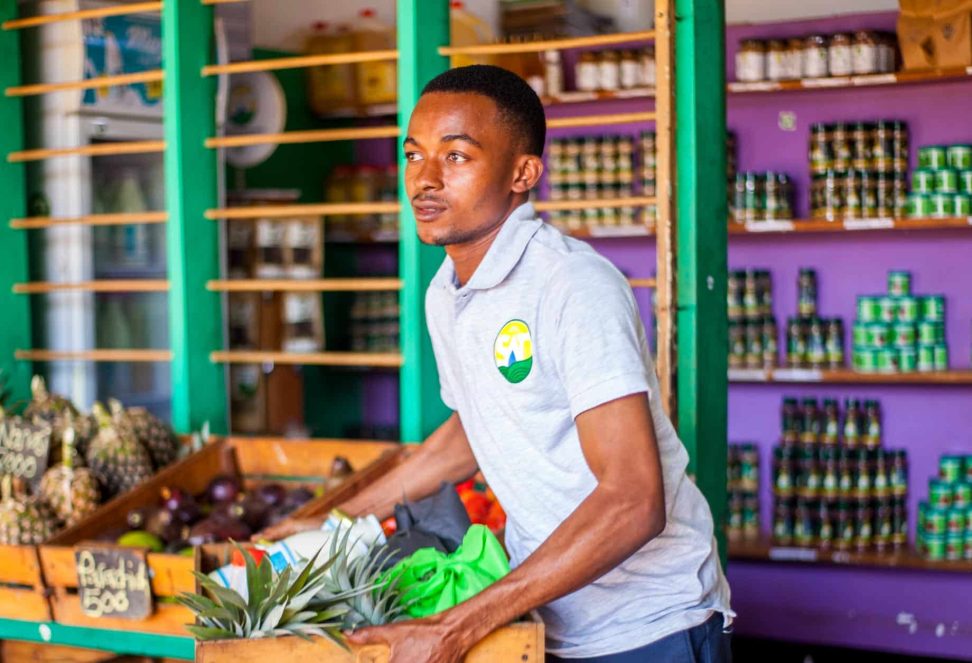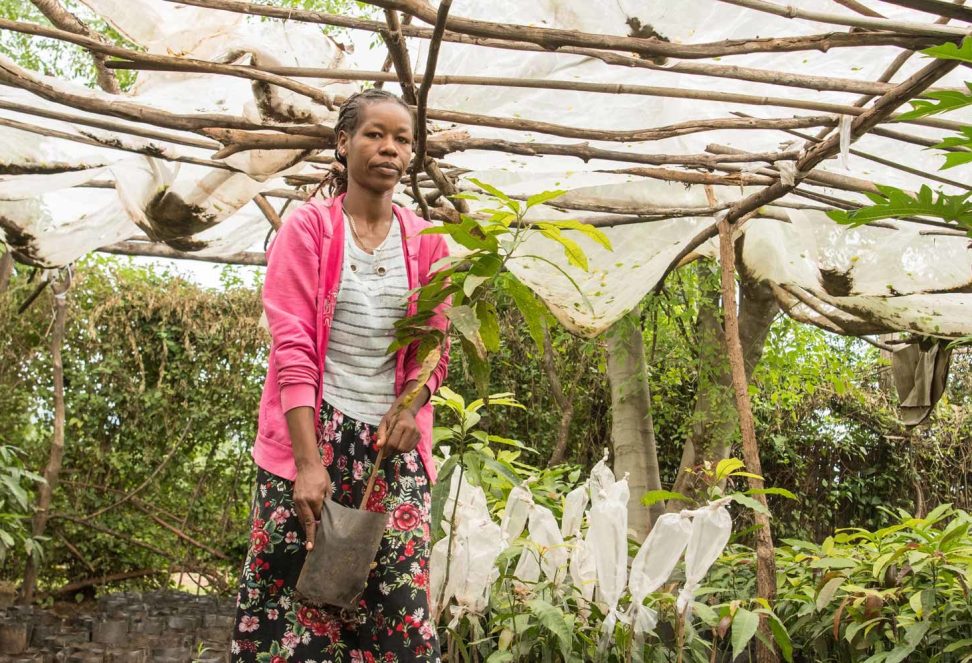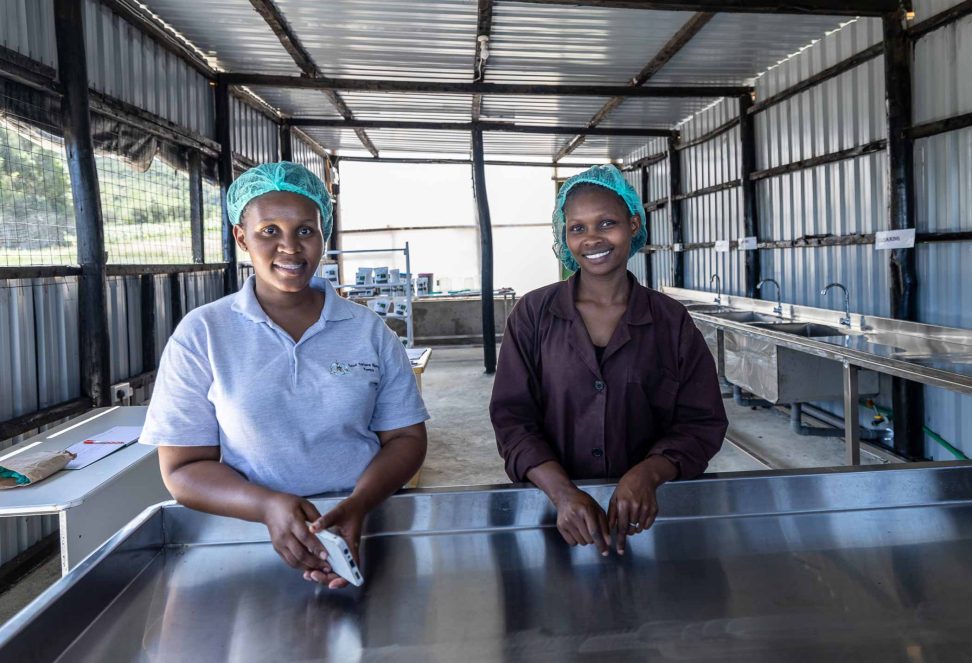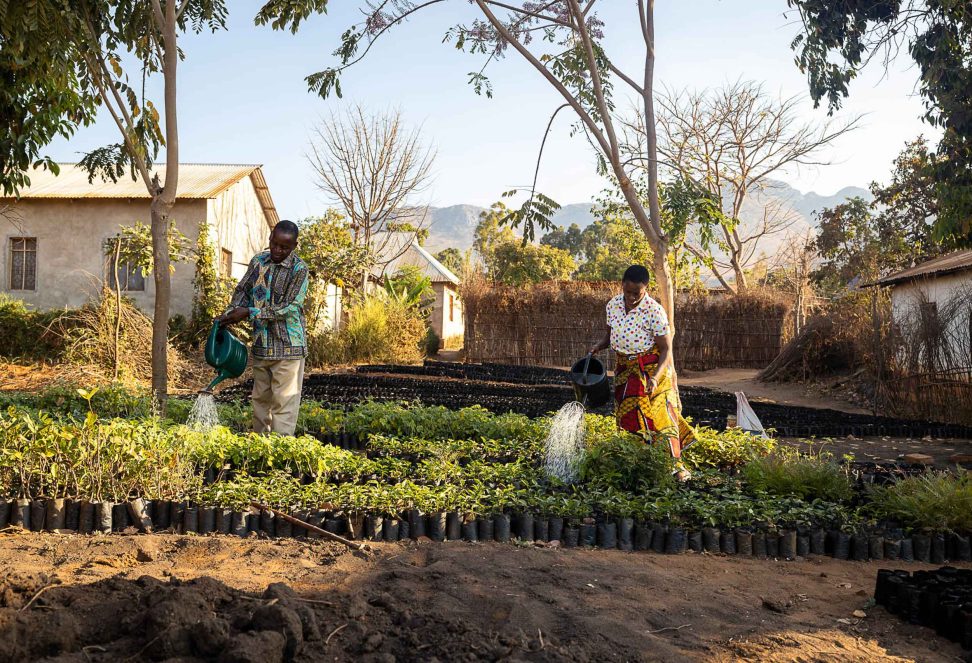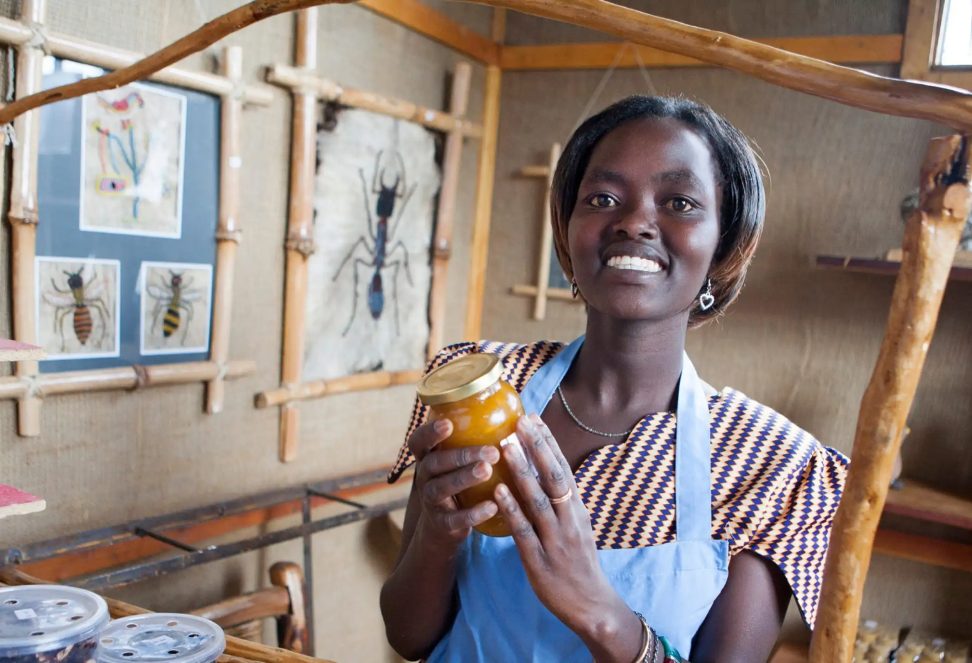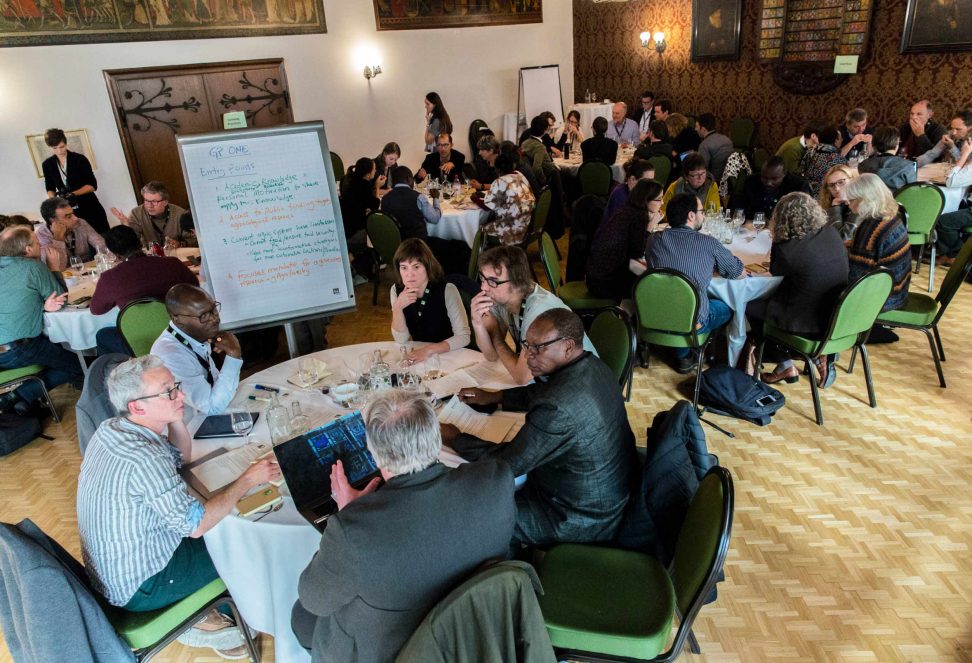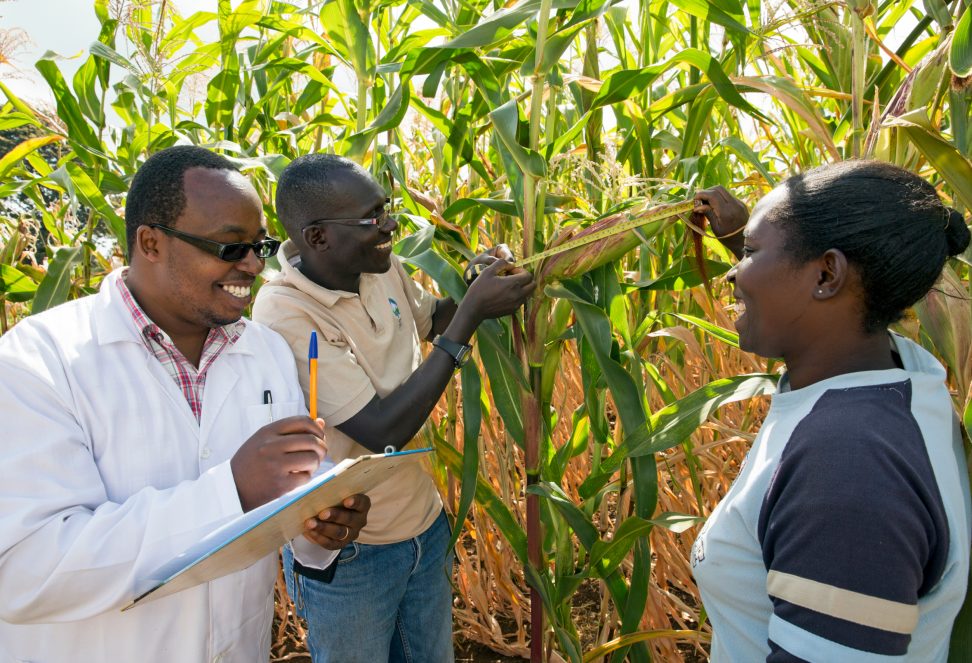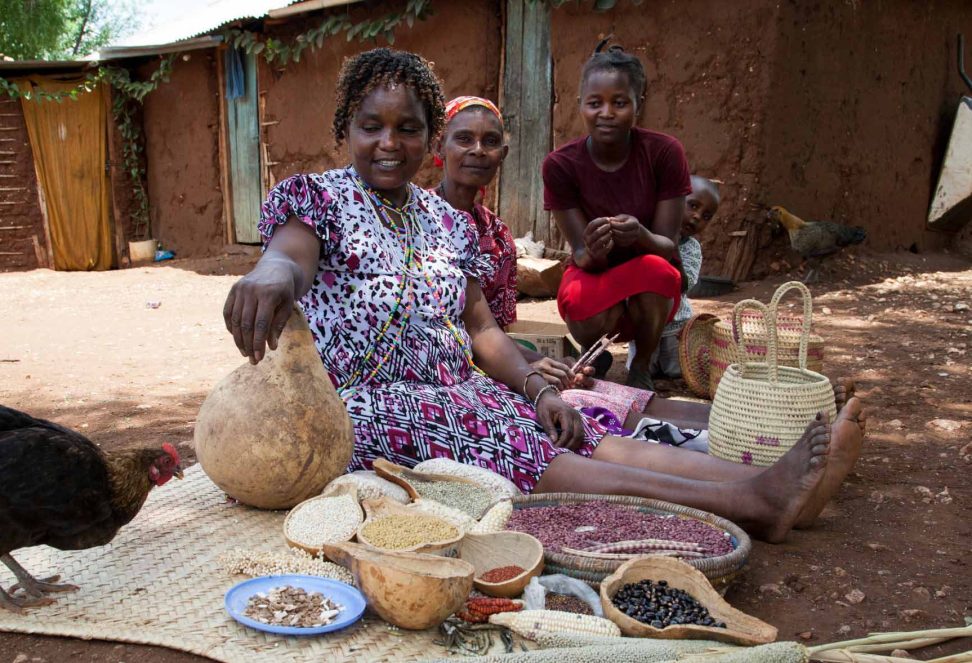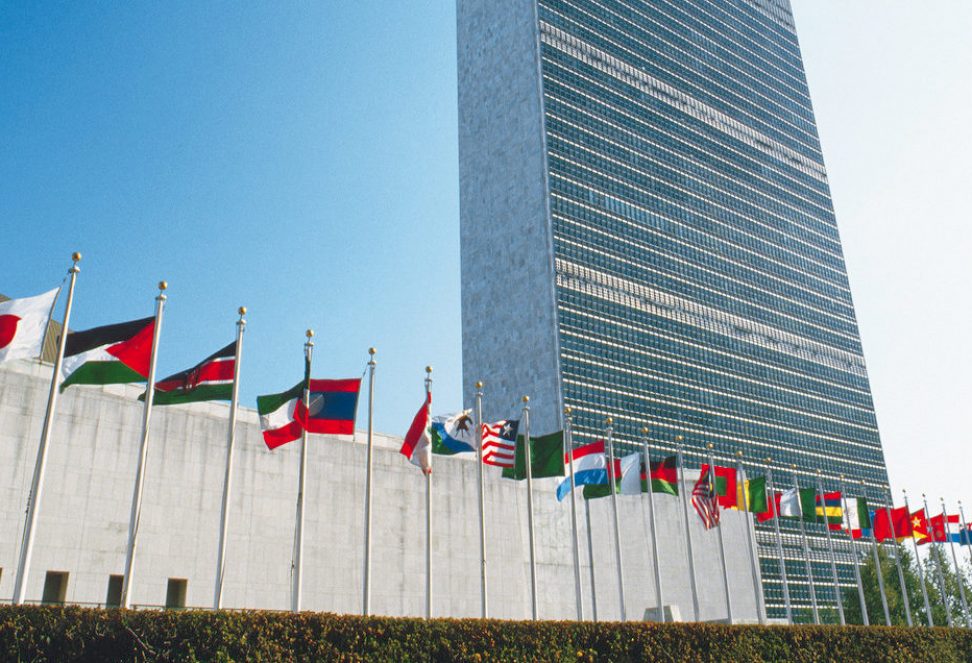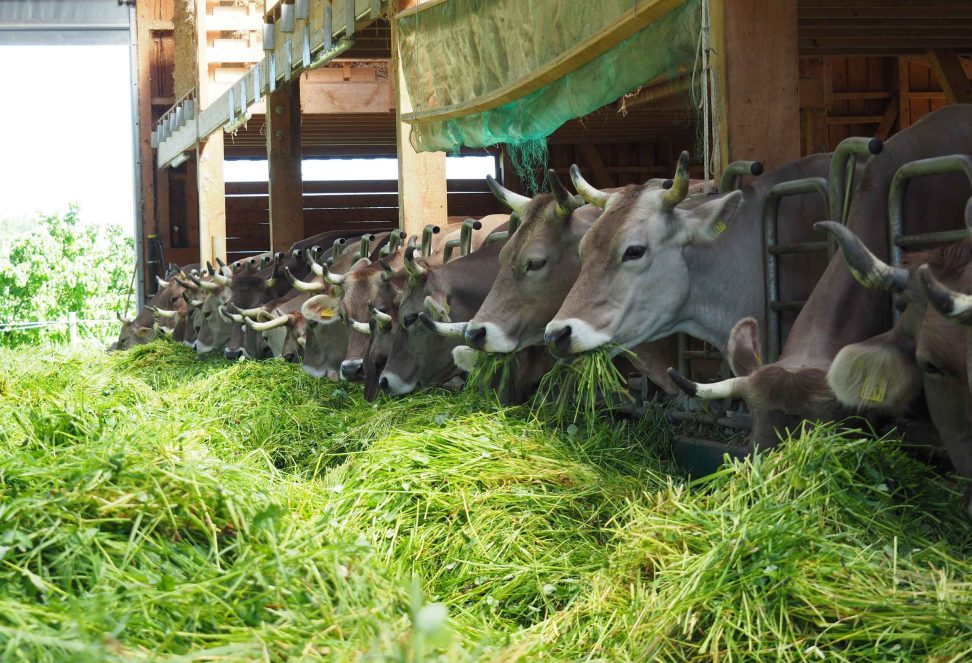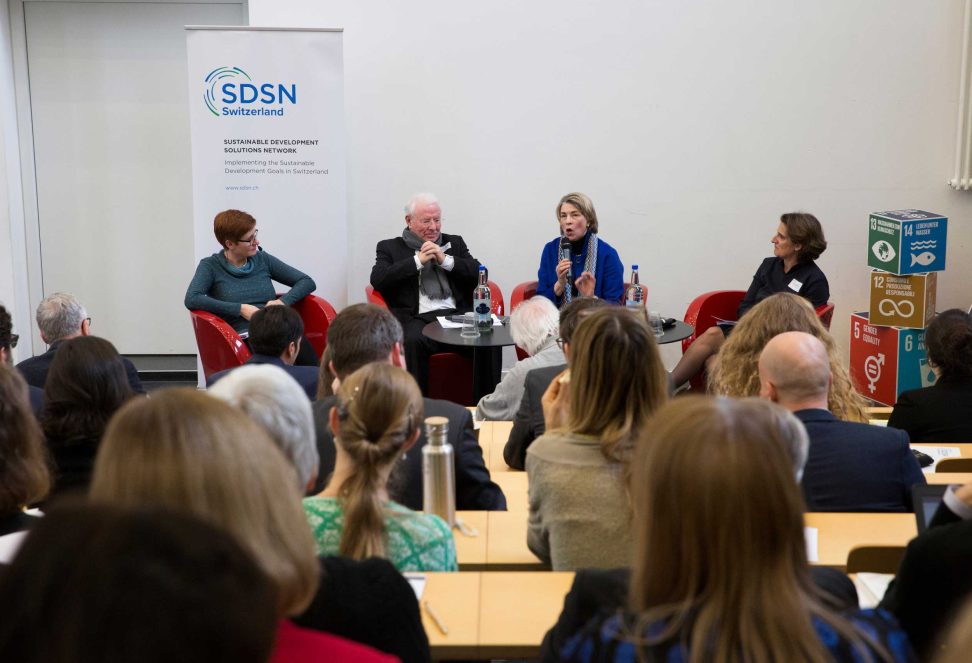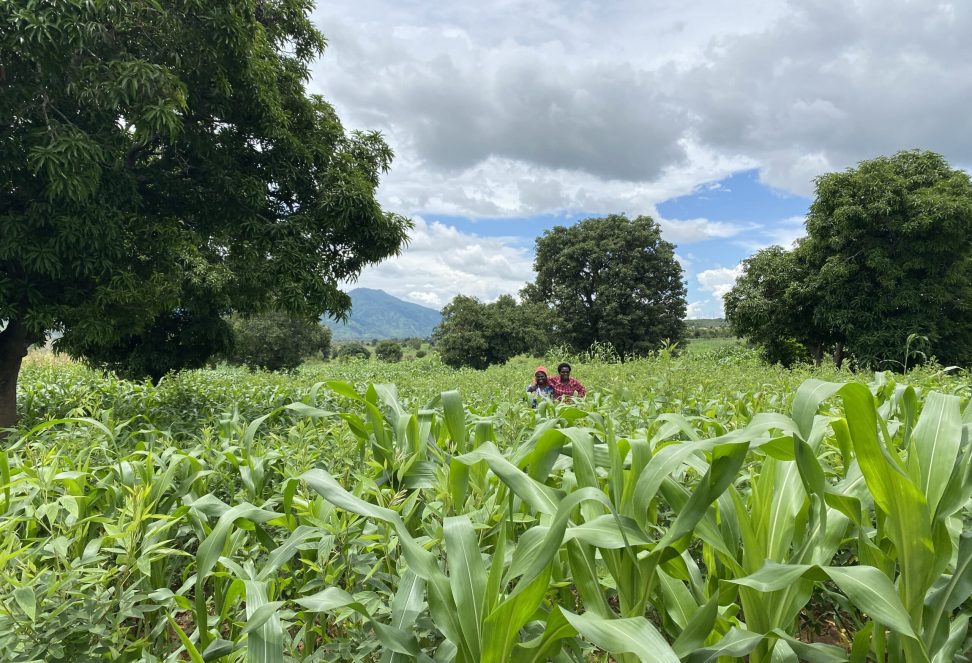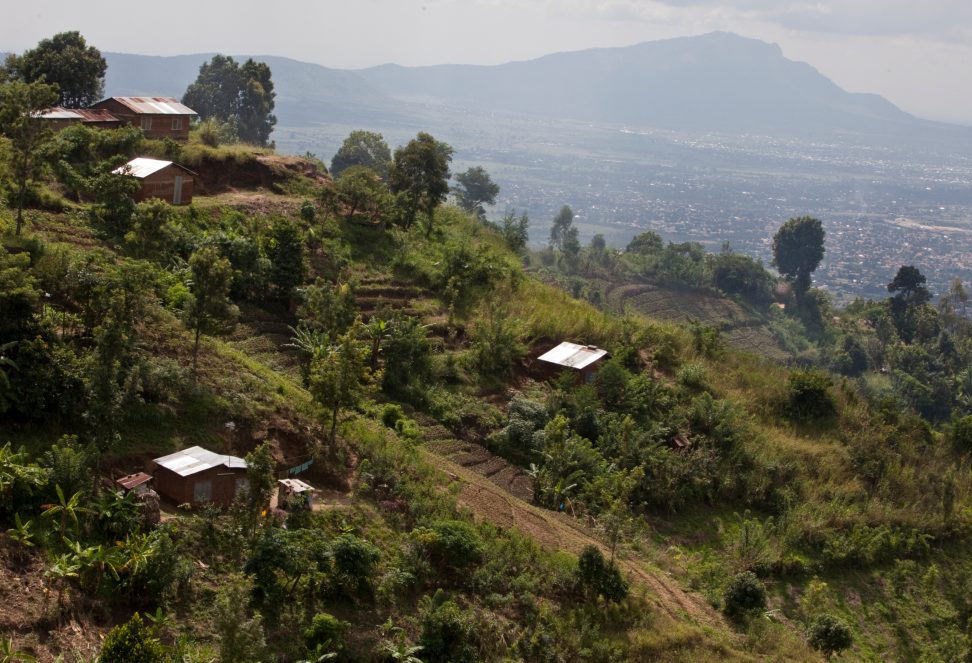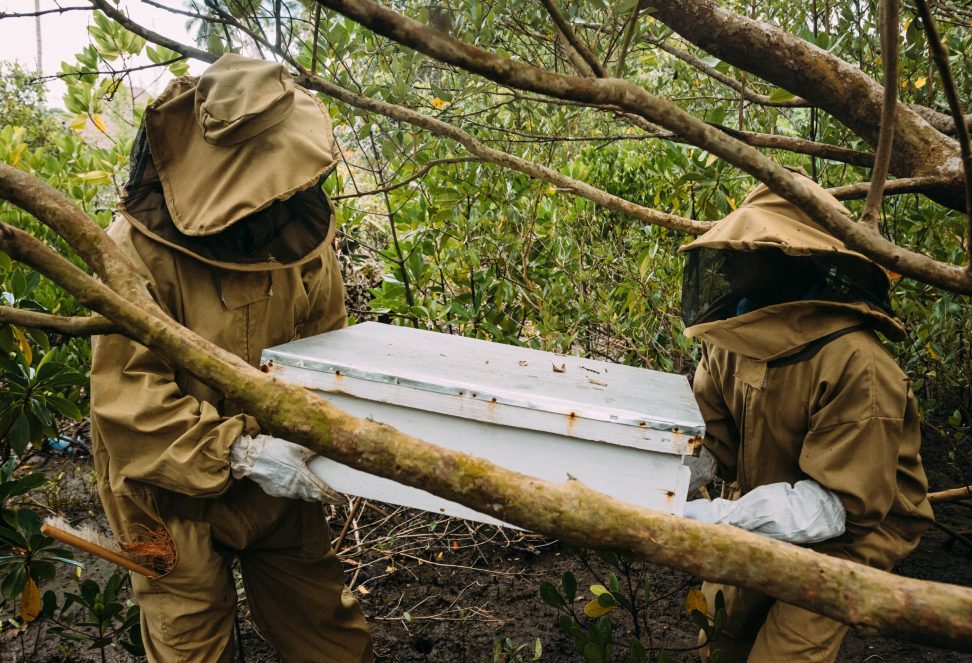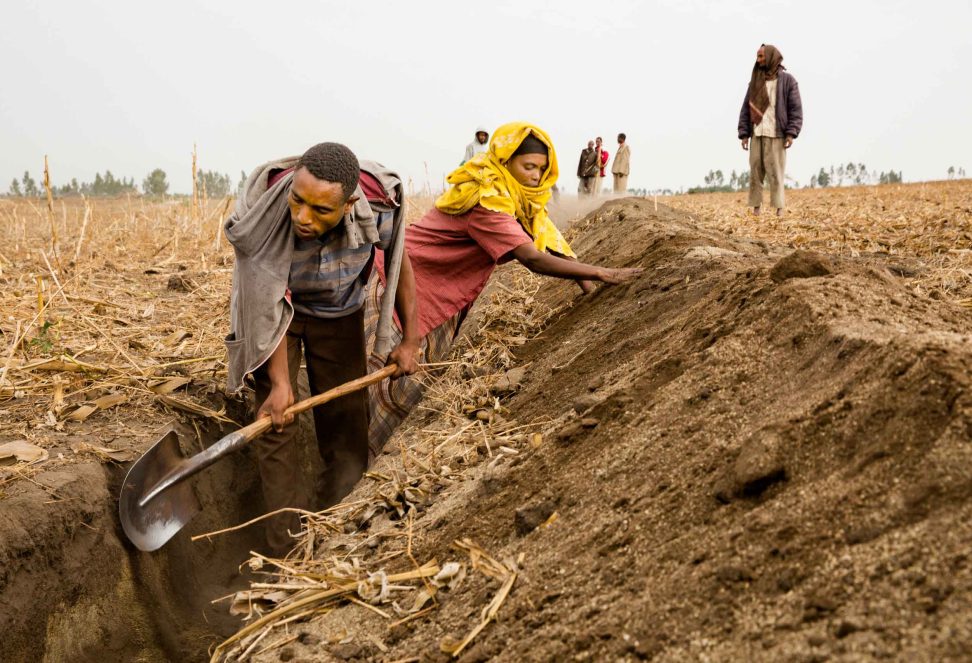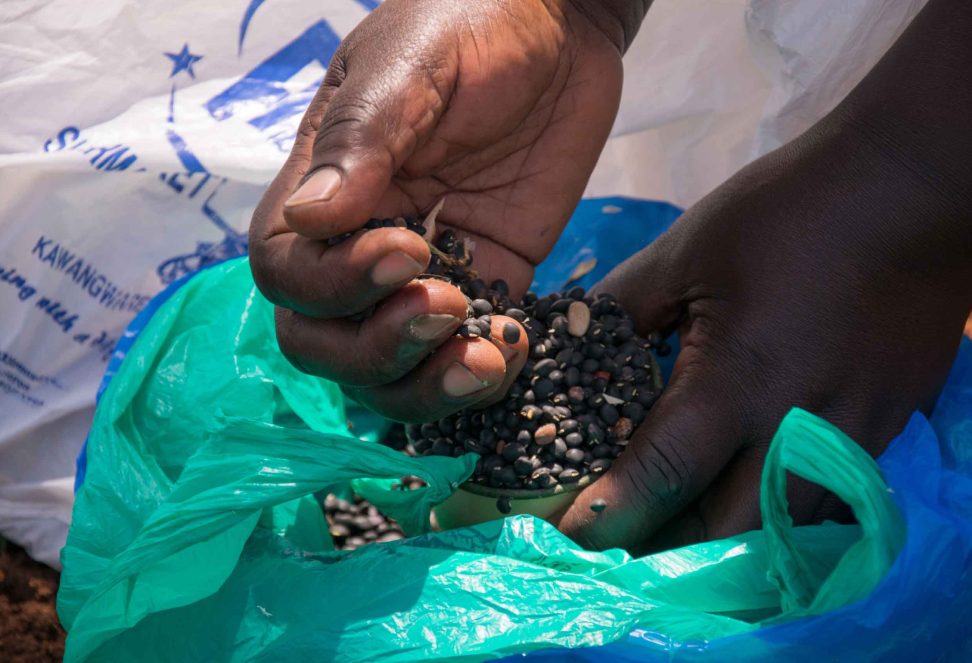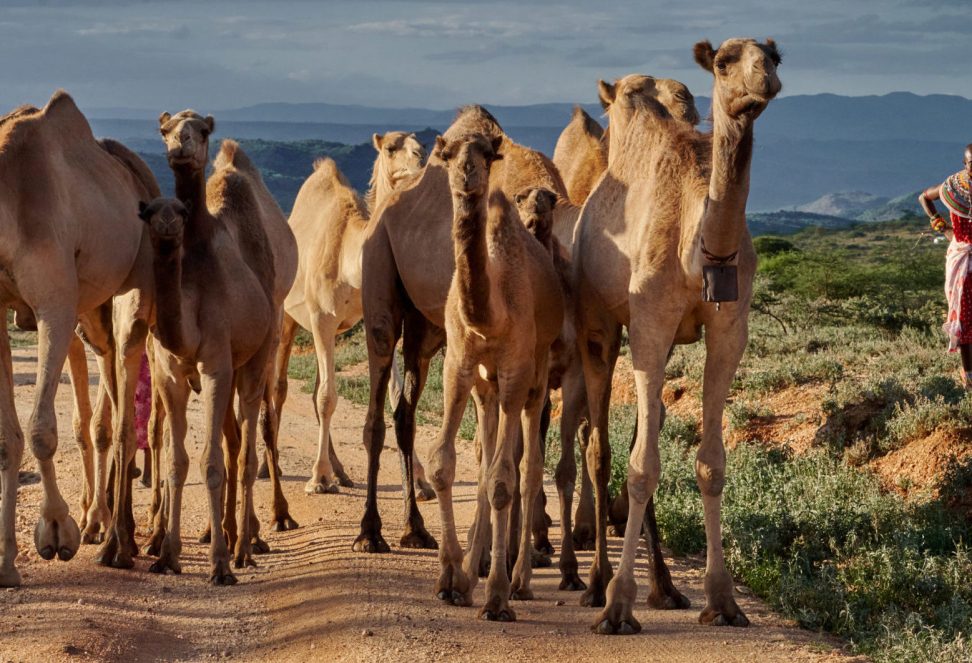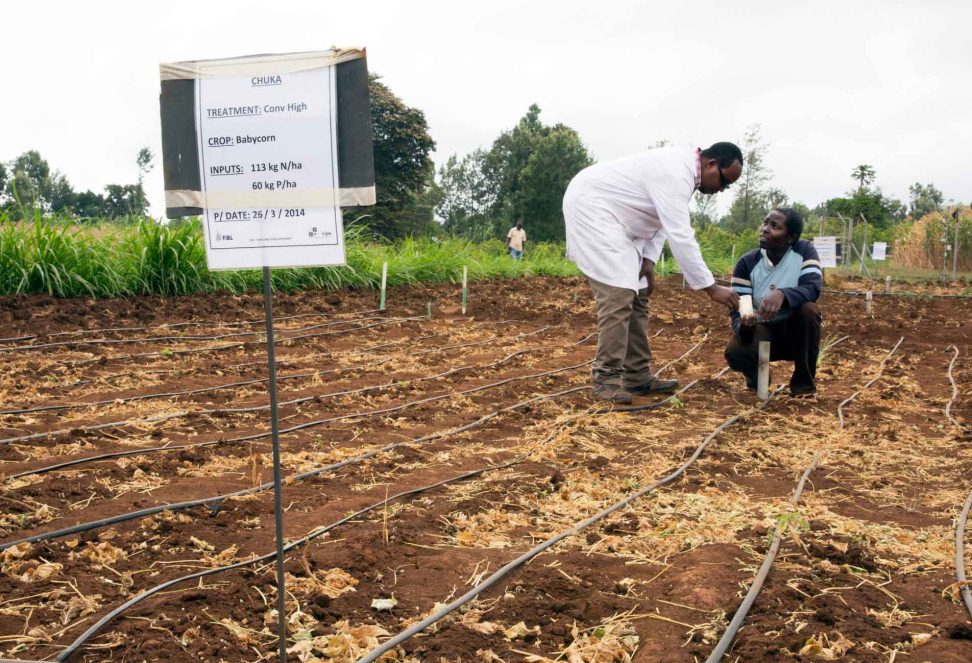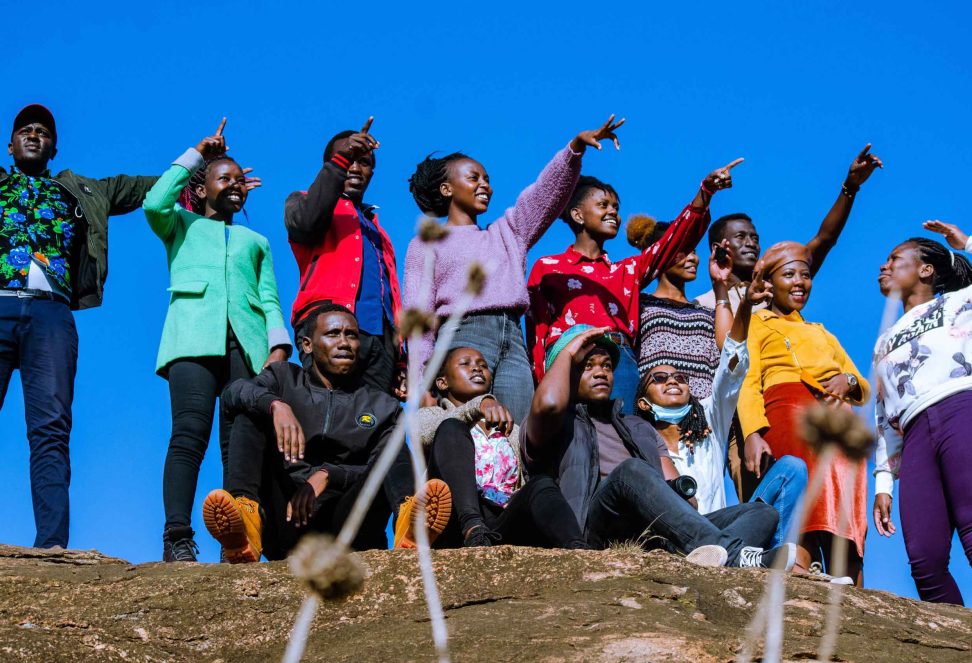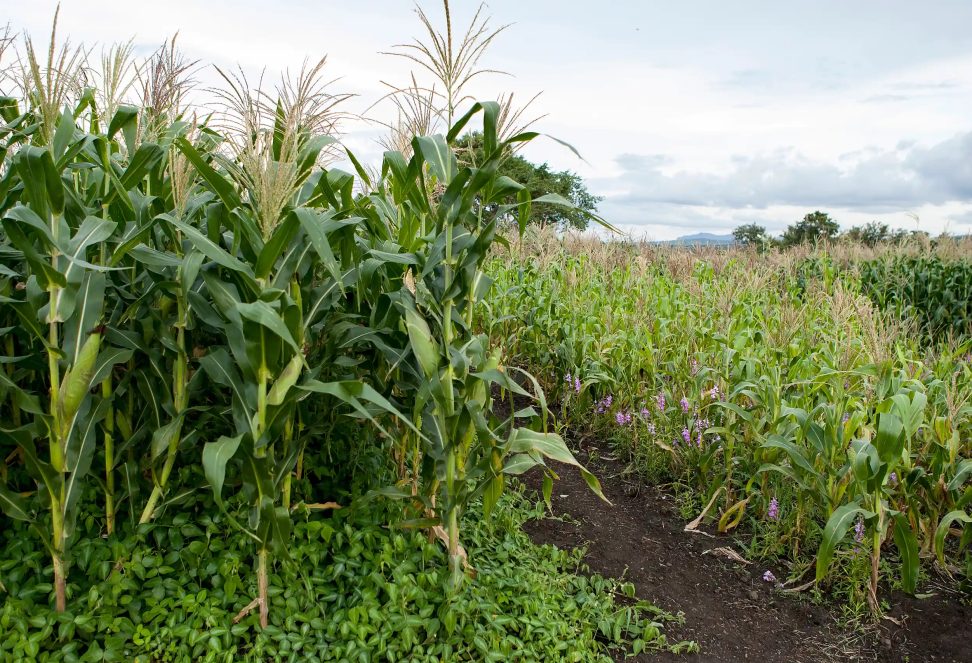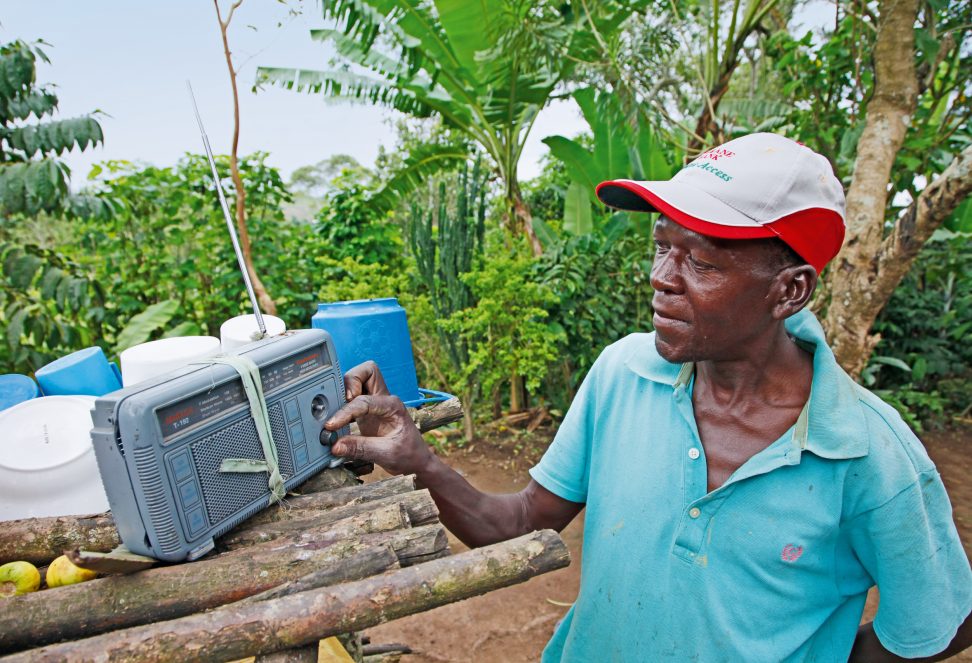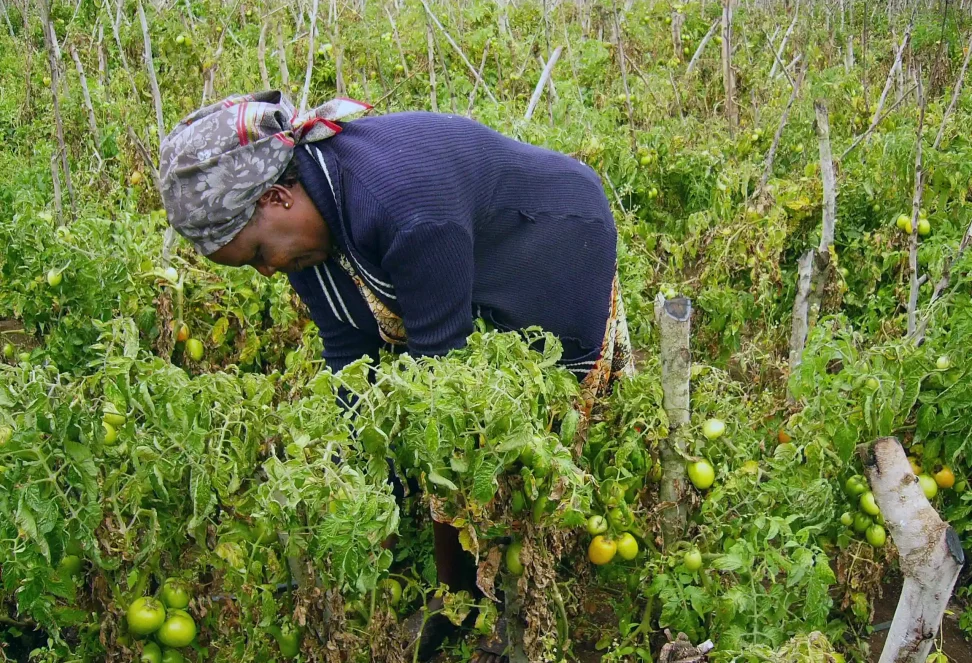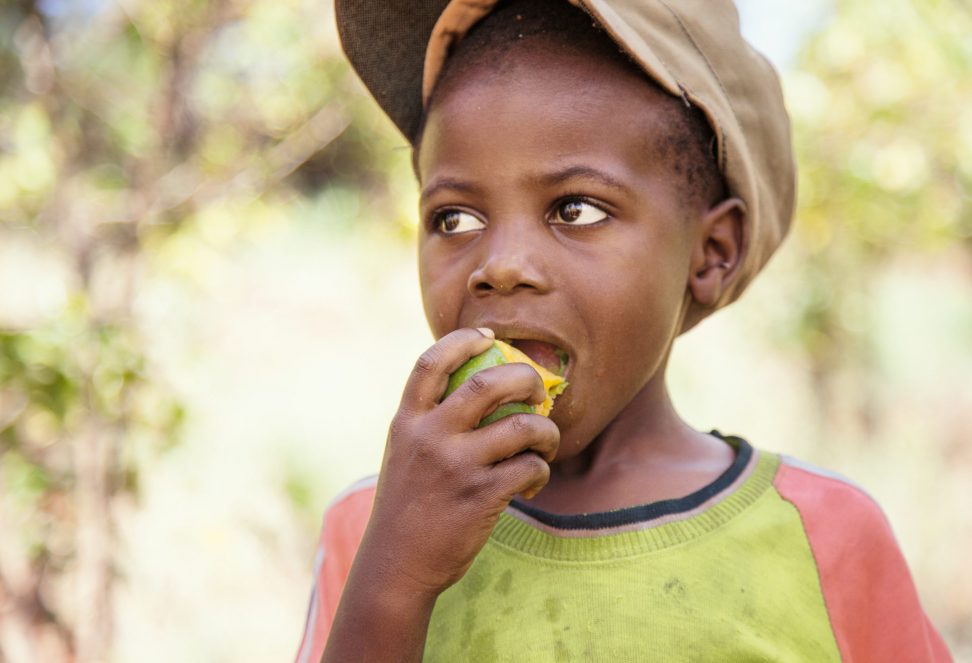By clicking on this symbol ![]() in the map, you can filter by topic.
in the map, you can filter by topic.
Project Overview
Topics
Regions
Uganda
Startups for Agroecology in Uganda
How can young businesses help build sustainable food systems? The Rootical startup studio, supported by Biovision, guides entrepreneurs in Uganda in developing forward-thinking startups in agroecology – from the first idea to market entry.
Uganda
A Consortium for Sustainable Food Systems in Uganda
How can food security be strengthened and sustainable agriculture promoted? In Uganda’s Kigezi region, Biovision and a consortium of local partner organizations are building a
resilient food system – from production to consumption.
Kenya
From Research to the Fields
The information hub for ecological agriculture makes valuable knowledge accessible to smallholder farmers in Kenya.
Tanzania
Clever Farmer in Tanzania
With support from Biovision, a practical guide for smallholder families is published in Tanzania. The name of the magazine: Clever Farmer.
Kenya
Innovative approach to fighting malaria
Whoever lives in the vicinity of their livestock in Kenya is at increased risk of contracting malaria or another potentially deadly disease. Through an innovative research project, Biovision is making a virtue of necessity.
Kenya, Uganda
One Health: Healthy People, Animals, and Environment
The health of people, animals, and the environment is closely connected. With our project in East Africa, Biovision promotes a One Health approach, combining integrated advisory clinics for sustainable agricultural production and better overall health.
Agriculture
Kenya, Tanzania
Agroveg: Push-Pull for Vegetables
Vegetable farmers in Kenya and Tanzania rely on Push-Pull methods instead of pesticides to combat pests and diseases. Biovision is also strengthening the market for sustainably grown agroecological vegetables (Agroveg).
Agriculture
Kenya
Greener Greens: Biovision Shapes a Green Future
In Kenya’s Murang’a County, agroecology is legally enshrined—a milestone. Through our Greener Greens project, we aim to expand agroecological vegetable farming in the region while enhancing overall agriculture. From water management to balanced diets and sustainable job opportunities, the project addresses multiple aspects of agricultural sustainability.
Ethiopia
Strengthening Ethiopian agriculture with Push-Pull
In Ethiopia, droughts and pests threaten the existence of smallholder farms. With innovative approaches and smart methods, we aim to sustainably increase farmers’ yields and incomes – while helping to build a market for agroecological products.
Consumption, Knowledge
Kenya
Healthy nutrition for people in poor settlements
Many people in poor settlements suffer from malnutrition. In Nairobi, Biovision wants to give them access to healthy food.
Knowledge
Switzerland
Sounding Soil – healthy soil makes noise
Soils that are alive make sounds – and soils that are cultivated in different ways sound different from one another. The research and art project “Sounding Soil” makes these sounds audible. Biovision uses “Sounding Soil” to sensitise the population, students, farmers and decision makers about sustainably managing soils.
Consumption
Switzerland
CLEVER – sustainable consumption
The CLEVER travelling exhibition raises young people’s awareness for sustainable consumption. Every day we make countless decisions about our diet: Do we eat meat or cook vegetarian? Organic or conventional? CLEVER provides answers so that young people can make better purchasing decisions.
Politics
Switzerland
For an Agroecological Swiss Food Policy
The Swiss food system from 2030 onwards should take on an agroecological character: environment and animal friendly with fair social conditions for all involved. The programme will contribute to the necessary political changes required.
Agriculture
Tanzania
Radio programmes win over millions of people in Tanzania to sustainability
Together with our partner Farm Radio International, we want to transform Tanzanian agriculture to be more sustainable. Print magazines and radio programmes are helping raise awareness among millions of farmers for promoting local varieties and avoiding artificial fertilizers and chemical pesticides.
Agriculture, Markets
Tanzania
How We’re Building an Organic Market
It’s not enough for farmers to produce sustainably. Someone must also pay them a fair price for their products. That’s why Biovision is collaborating with dedicated companies to establish an organic market in Tanzania.
Agriculture
Ethiopia
Building an entire economic sector with mangos
In Ethiopia, Biovision promotes mangos as a pivotal source of income. To ensure the sustainability of the crop, farmers are trained in agroeconomic practices, and their connections to entrepreneurs and authorities along the mango value chain are strengthened.
Agriculture, Markets
Kenya, Uganda
Neycha: The First Agroecology Accelerator and Fund
Agroecological enterprises are a key element in the transformation towards just and sustainable food systems. To enable them to scale up and create more local jobs and impact, we and our partner organization Shona set up the Neycha Accelerator & Fund to provide capacity building, networking and access to capital.
Agriculture
Tanzania
Combating the drought with clever ideas
Biovision is collaborating with smallholder farming families, authorities, and scientists in central Tanzania to test and implement agroecological methods to combat drought and erosion. Trenches, dams, and resilient crop varieties are helping to address drought and irregular rainfall in the Kongwa district.
Markets
International, Kenya, Uganda
Investing in the Agroecological Business Case (iABC)
To catalyse the scaling of agroecology and advance the transformation of food systems, the iABC programme aims to increase the availability of suitable capital and build an enabling environment for agroecological enterprises in East Africa.
Knowledge, Politics
International, Kenya, Uganda
Enabling policy frameworks for agroecology
The objective of the programme is to increase the sustainability of food systems in Sub-Saharan African and beyond by creating coherent and equitable policy frameworks that enable an agroecological transformation of food systems.
Knowledge
International, Kenya, Switzerland
More Research for Agroecology
The project aims to strengthen systemic research in agroecology. A study with renowned international partners analysed relevant cash flows and the most important points of leverage.
Politics
Switzerland
Food Future Switzerland
“Food Future Switzerland” makes a substantial contribution to the current discussion on future holistic policies for a healthy and sustainable food system in Switzerland. For the first time in Switzerland, a national citizens’ council will gather and develop recommendations for concrete measures on food policy, and a scientific expert panel will develop and present current proposals.
Agriculture, Knowledge
Kenya
Agroecology for countering the consequences of climate change
Strengthening farmers against climate change: Biovision uses traditional knowledge and the latest research for agroecological agriculture in Kenya.
Politics
International
Peer-to-peer exchange among policy makers
With the “Food Policy Forum for Change”, the project creates a platform where policy makers from around the world can learn from each other through mutual exchange and receive guidance in designing effective measures and initiatives for sustainable food systems.
Politics
Switzerland
Transforming the Swiss Food System
Biovision advocates for a solution-oriented and science-based political framework that makes a transformation towards a sustainable Swiss food system possible. To this end, Biovision is involved in networks such as the Agrarian Alliance and Agriculture with a Future.
Politics
Switzerland
Sustainable Development Solutions Network Switzerland
The Sustainable Development Solutions Network Switzerland, SDSN for short, is committed to promoting the achievement of the UN Sustainable Development Goals in politics, society, business and science. The individual actors are networked with each other in order to jointly develop sustainable solutions for the current problems of our time. SDSN is a United Nations initiative.
Agriculture, Knowledge
Malawi
Where farmers become researchers
Can farmers conduct research? Definitely! In Malawi, they are experimenting with dozens of agroecological farming methods – and with great success.
Agriculture
Tanzania
Centre for Agroecology in Tanzania
Biovision wants to support the use of agroecological practices along the entire value chain. To do so, various interest groups must be brought together. At the Centre for Agroecology in Morogoro, Tanzania, we are doing just that.
Agriculture
Tanzania
How bees protect mangroves on Zanzibar
In Zanzibar, Biovision combines beekeeping with sustainable forest utilisation. The bees provide new sources of income with their honey. At the same time, they support reforestation measures and thus help to protect the endangered mangrove forests on the island.
Agriculture, Knowledge
Ethiopia
How young women become beekeepers
In Ethiopia, Biovision wants young women to earn a stable income through beekeeping. This not only helps their families, but also promotes plant diversity and the renaturation of the region.
Agriculture
Ethiopia
Ethiopia: Healthy soils and fair wages
In the Ethiopian districts of Tiyo and Hitosa, we are involved in promoting more sustainable and fairer agriculture on three fronts: We increase farmers’ yields using clever methods, encourage healthier soils and more biodiversity, and also empower women through training and education.
Agriculture
Kenya
Local seed for combatting climate change
Local seed banks in the Kenyan district of Vihiga are not just for making agriculture more resilient to climate change. Biovision also wants to contribute to the survival of traditional plant varieties. The seed banks provide farming families with an important additional source of income.
Agriculture, Knowledge
Kenya
Agroecology for countering the consequences of climate change
In Kenya, agroecological measures should help smallholder farming families better adapt to climate change. With this in mind, Biovision combines longstanding methods with the newest insights from research.
Agriculture
Kenya
Camels and invasive plants provide a crisis-proof income
In the Samburu district of Kenya, Biovision is relying on camels and the innovative use of invasive plants. With them, herders can cope better with challenges such as climate change.
Agriculture, Knowledge
Kenya
Long-term System Comparison
Through a long-term study in Kenya, Biovision wants to compare the costs and benefits of organic and conventional farming methods. The project also involves local farmers with their knowledge and experience.
Agriculture, Knowledge
Kenya, Tanzania, Uganda
Agroecology Seminar
The effects of climate change, depleted soils, disease and pest infestation and missing support are key challenges for smallholder farmers in East Africa. Awareness that a profound transformation of food systems is needed to solve these problems is also growing in many African countries. For this transformation to succeed, “change makers” are needed.
Agriculture, Knowledge
Kenya, Tanzania
Push-Pull: Fighting pests while improving nutrition
Small farmers in Kenya and Tanzania are using Push-Pull to successfully control pests. This organic farming method also has a positive effect on the soil and the climate. Above all, however, it increases harvest yields and nutritional diversity.
Knowledge
Kenya, Tanzania
Farmer Communication Programme
Biovision’s Farmer Communication Programme (FCP) is a multimedia package that disseminates information via magazine, radio, internet and personal advice in the field.
Agriculture, Knowledge
Kenya
Tomato production without pesticides
Because pests routinely ravage tomato fields in Kenya, farmers often used highly toxic insecticides in the past. Biovision wants to show that plant protection can also function sustainably and without harmful substances.
Agriculture
Kenya
Integrated Fruit Fly Control
Mangoes offer a lucrative sales market, but fruit flies introduced into the area have cause massive damage to farmers’ harvests. Biovision supports the use of integrated methods to control this pest.
